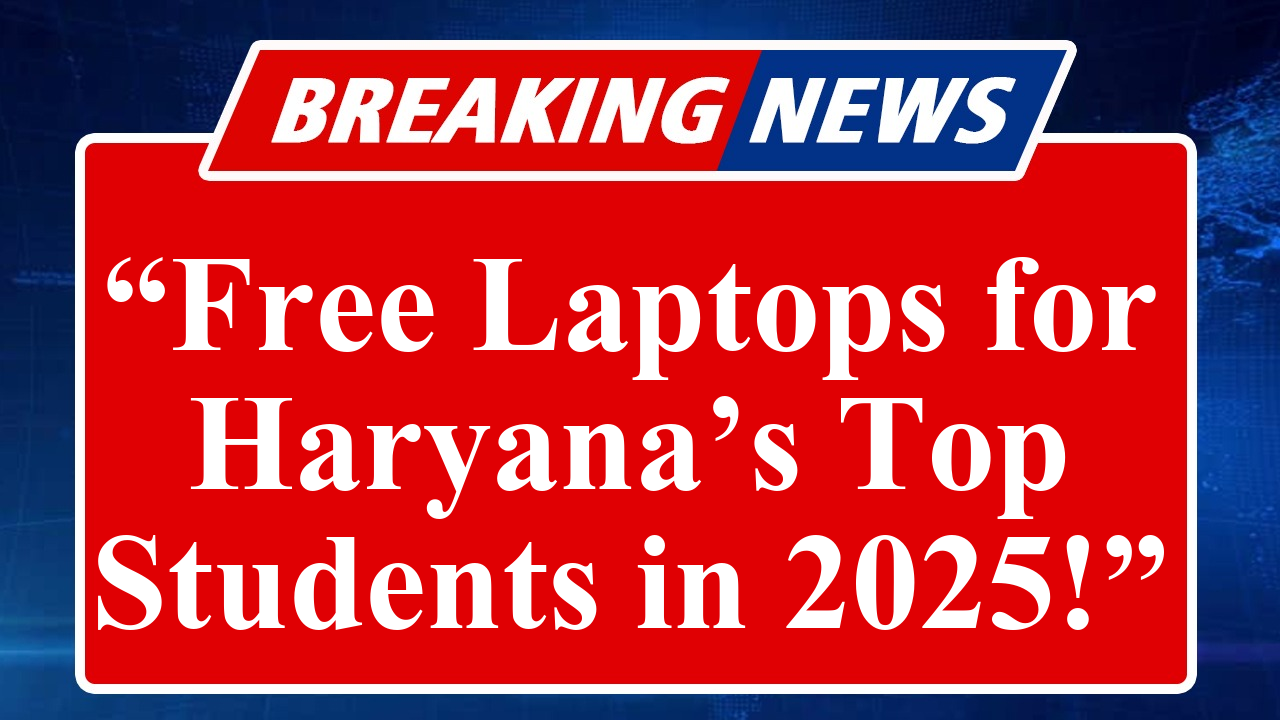Haryana’s government has launched the Free Laptop Yojana 2025, targeting Class 10 students scoring above 90% in board exams. The initiative aims to boost digital education, providing free laptops to meritorious students under the Haryana School Education Board. This move supports academic excellence and digital literacy, ensuring no student is left behind in the digital era.
Haryana’s 2025 Free Laptop Initiative for High-Achieving Students
The Haryana government has rolled out the Free Laptop Yojana 2025, a significant step toward promoting digital education and rewarding academic excellence. Announced on June 6, 2025, the scheme targets students who have excelled in their Class 10 board examinations conducted by the Haryana School Education Board (HSEB). Specifically, students securing 90% or higher marks are eligible to receive free laptops, enabling them to access modern educational resources and stay competitive in a technology-driven world.
According to sources, the initiative is designed to bridge the digital divide, particularly for students in rural and economically disadvantaged areas. By providing free laptops, the state aims to empower meritorious students to pursue higher education and develop skills essential for the digital age. The scheme aligns with the government’s broader vision of enhancing educational infrastructure and ensuring equitable access to technology.
The Haryana Education Department has outlined clear eligibility criteria for the scheme. Only students enrolled in schools affiliated with the HSEB qualify, and the selection is based solely on merit, determined by board exam results. The department has emphasized that the application process will be streamlined through an online portal, expected to be launched on the UPUSEP platform in the coming weeks. Students will need to submit their board exam results and other required documents to verify eligibility.
Haryana Education Minister Mahipal Dhanda, speaking at a press conference in Chandigarh, highlighted the scheme’s importance. “Our goal is to ensure that no talented student is deprived of educational opportunities due to lack of resources. This initiative will provide them with tools to excel in their studies and beyond,” he said. The minister also noted that the scheme complements other educational initiatives, such as free coaching for competitive exams like JEE and NDA, launched earlier in 2025.
The Free Laptop Yojana has been met with enthusiasm from students and educators alike. Schools across the state are preparing to assist eligible students with the application process, ensuring maximum participation. The government has allocated a significant budget to support the scheme, though exact figures remain undisclosed as of July 5, 2025. Officials have assured that the distribution process will be transparent and efficient, with laptops expected to be distributed by the end of the academic year.
However, caution is advised regarding fraudulent schemes. A recent PIB Fact Check debunked a viral WhatsApp message claiming a “Free Laptop Scheme 2025” under the central government, labeling it fake. Students and parents are urged to rely on official government portals for information and avoid clicking on suspicious links.
The initiative has also sparked discussions about its potential impact. Education experts believe it will motivate students to perform better in board exams while fostering digital literacy. “Access to technology is no longer a luxury; it’s a necessity. This scheme will open new doors for students, especially in rural Haryana,” said Dr. Anita Sharma, a prominent educator in Gurgaon.
As the state gears up for the scheme’s implementation, stakeholders are optimistic about its role in shaping Haryana’s educational landscape. The Free Laptop Yojana 2025 is poised to become a cornerstone of the state’s efforts to create a digitally empowered generation of learners.
Disclaimer: This article is based on information available from government announcements, official statements, and credible news sources as of July 5, 2025. Readers are advised to verify details through official government portals to avoid misinformation.

